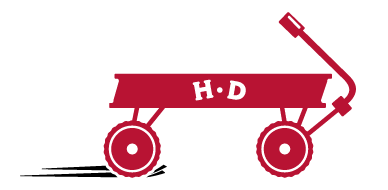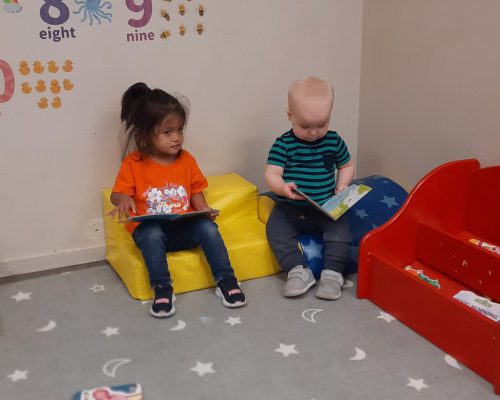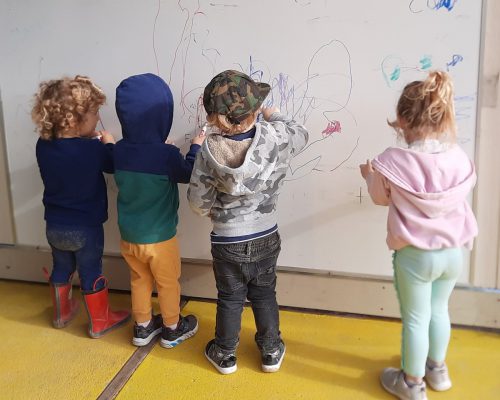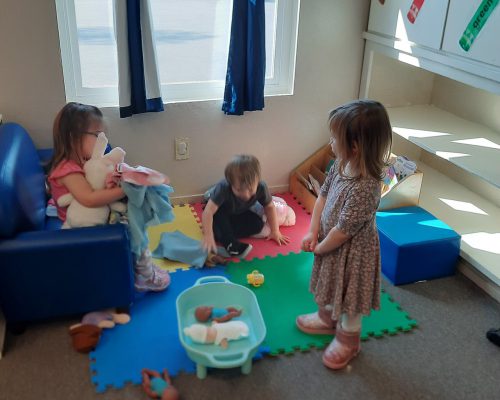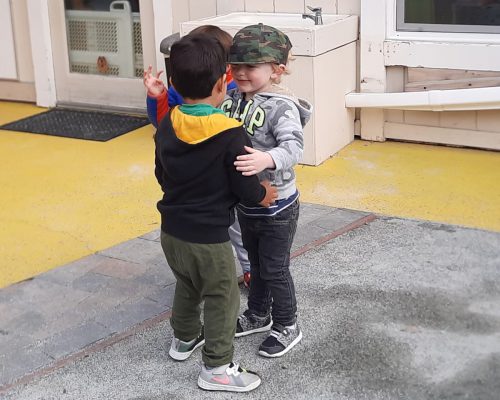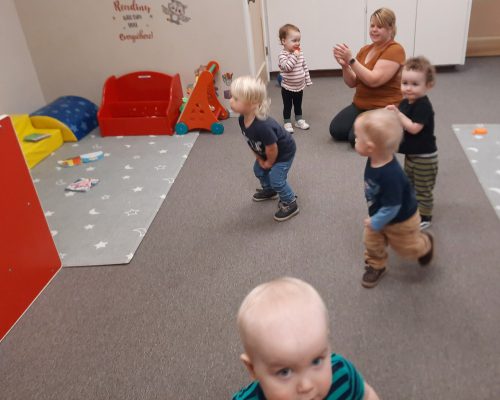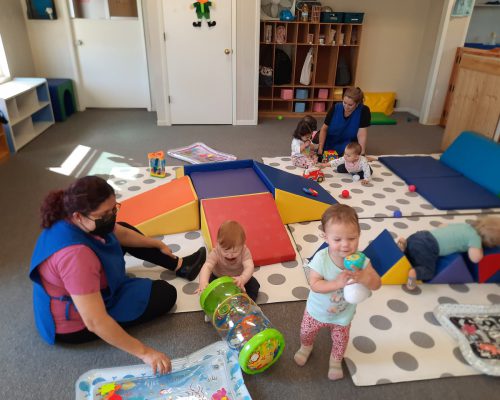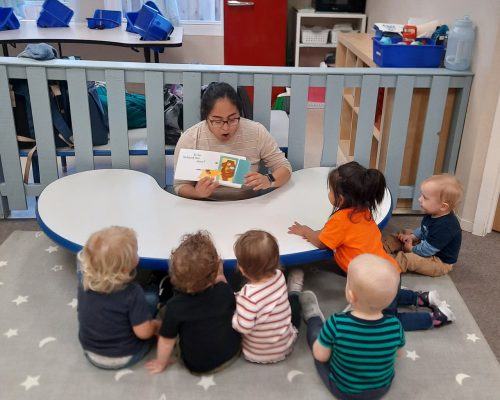
Our Philosophy
We strive to maximize confidence and learning for children and parents in positive ways. Our approach is focused on developing the love of learning that helps everyone involved reach their potential constructively. While children are encouraged to develop a sense of trust in their learning abilities, parents are supported in feeling good about themselves as role models.
Our staff of trained educators and mentors support family engagement. It is said that, “It takes a village to raise a child,” and we stand behind that notion by supporting families in achieving their goals.
Our most important objective is to maximize the development and learning for children, parents, and teachers.
We accomplish this with detailed daily logs that are shared between teachers and families. Our high teacher-to-child ratio also helps assure parents that we stay on top of everyone’s needs.
At Happy Days Children’s Learning Center
- We teach positive and appropriate social behavior.
- Children develop an understanding of trust, honesty, and integrity.
- All are encouraged to communicate by expressing their feelings and to develop empathy.
- Individual needs, interests, and learning styles are met in supportive ways.
Our Staff Are Educators & Mentors
- Our staff takes a positive approach to discipline and incorporates mutual problem-solving and choices with fair and consistent limits.
- Teachers provide encouragement and recognition to assist learning and progress.
Goals for Children:
- To feel confident about their abilities
- To be self-directed in a constructive, creative manner
- To get along with others by developing a sense of right and wrong
- To develop a love of learning and reach their potential
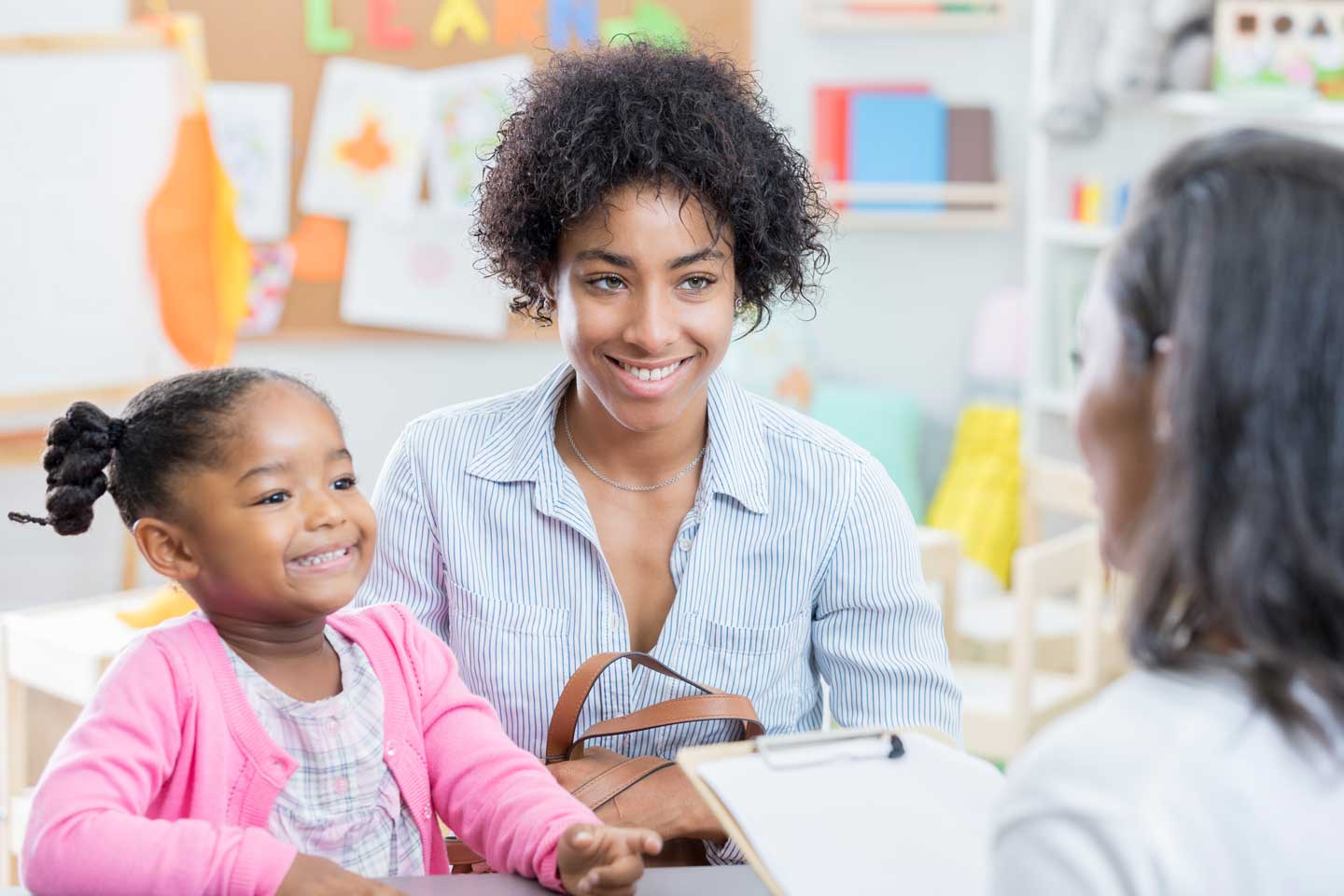
Goals for Parents:
- To feel good about their role as parents and about raising their children
- To gain insight into the behavior of children and their own child in particular
- To provide an atmosphere of caring, acceptance, and support, so we can all work as partners in this process
Goals for Teachers:
- To experience working with young children in a quality preschool setting
- To learn appropriate and effective ways of communicating with young children
- To understand developmental differences in children from ages 2.5 through 5
- To gain self-confidence in the ability to work with others, including children, peers, and parents

